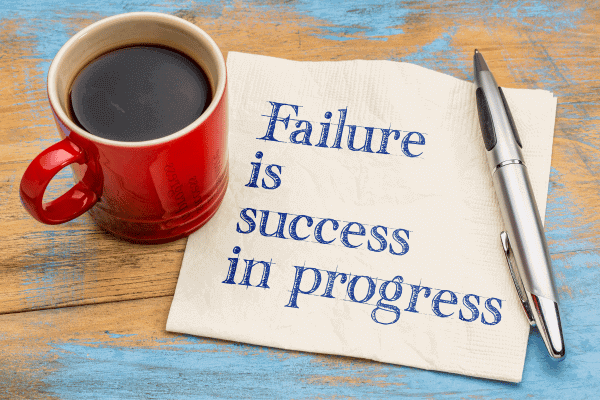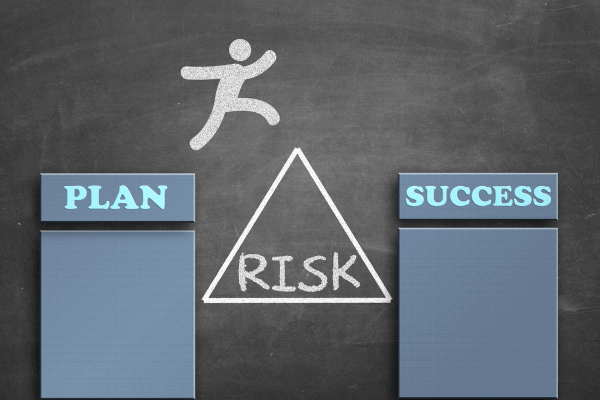It's no secret that being a successful singer requires focus, drive, and dedication. But how does one stay motivated in the face of constant setbacks and rejections? That is where the Stoic Singer comes in.
The Stoic Singer knows how to set goals, persevere through hardships, and use adversity to fuel their success. In an episode of The Intelligent Vocalist podcast with John Henny, he explored a Stoic Singer's approach to goal-setting and why you should incorporate it into your singing career and objectives.
Key takeaways:
- We can only alter how we respond to reality; we cannot alter reality itself
- Stoicism can help us overcome fears of failure
- Taking risks and risking failure is how we grow
What is Stoicism?
Stoicism is a philosophy that first emerged in Ancient Greece. It is a school of thought that was established in the third century BC by Zeno of Citium and made popular by the thinker Epictetus. The idea strongly emphasizes learning self-control and resilience in the face of difficulty.
The Stoics held that humankind should use reason to live in harmony with nature, and this reason governs the world. The Stoics' approaches to life also advocate for a life of tranquility, restraint, being in the moment, and rational decision-making.
These types of people understand that human life is valuable. And so, instead of wasting it by worrying and dwelling on unnecessary matters, they meditate. By reflecting on the fragility of time, Stoics aim to make death and transience appear as normal elements of the human experience that can be handled without fear.
What is a Stoic Singer?
The concept of a Stoic Singer was defined by John as someone who follows the philosophy of Stoicism. This philosophy teaches that the best way to live and understand the meaning of life is by using reason and self-control.
A Stoic Singer applies a philosophy of life known as Stoicism. This entails that a Stoic Singer will set goals for themselves and work hard in everyday life to achieve them. They will also try to be reasonable in their expectations and not get too attached to one thing.
Control is a very crucial concept in maintaining the stability of life of every Stoic. Stoic singers, at the same time, have to control their emotions and reactions to remain focused on their singing goals.
As John said, we can only alter how we respond to reality; we cannot alter reality itself. It's about time for us to face our individual realities. If we listen to our favorite songs and realize that we're not as good as the singer, that is our current reality.
If you don't have a whistle register, that's a reality you should learn to accept and embrace. If you feel like you're not as good as anyone else, you might not fully submit to the process.
In this episode, John imparts a crucial lesson. He advised us not to leave the environment that fosters growth and joy.
Hence, practicing can be enjoyable if you fully submit to the process and let go of the results. Results appear on their own. Although you cannot control the outcome, you can control the process.

The Goal of a Stoic Singer
As a Stoic Singer, the goal is to live in accordance with Nature. This means following the path that leads to virtue and excellence and avoiding any actions that would lead to vice or corruption. The objective is to live in a state of serenity by being indifferent to external circumstances, which is how they hope to achieve inner tranquility.
The Stoic Singer strives for a life of simplicity, tranquility, and self-control, a life in which they can be at peace with themself and the world around them. By living in this way, they set an example for others to follow and serve as a role model for those who wish to live a virtuous life.

A Stoic's Approach to Failure
The Stoics believed that failure is inevitable and that trying to avoid it only leads to more pain. They thought the best way to deal with failure was to face it head-on and learn from it. This approach can be applied to any area of life, from business to relationships.
If you're into becoming a Stoic Singer, look into the factors John discussed as a Stoic's approach to failure.
Don't fear failure
It is natural to fear failure. We all want to succeed in whatever we do. But if we let the fear of failure paralyze us, we will never accomplish anything. Instead, we need to embrace failure as a necessary part of success. But if we fail, we should not beat ourselves up. We should view it as an opportunity to learn and grow.
The key is not to let failures define you. Instead, use them as opportunities to learn and grow. Embrace your mistakes and use them as fuel for your journey toward success.
Let go of what is out of our control
It is easy to become fixated on the things in life that we cannot control. This can lead to feelings of frustration, anger, and helplessness. While it is important to take action when we can influence a situation, there are also times when we need to accept that there is nothing we can do and let go.
One of the best ways to overcome the fear of failure is to develop what stoics call "the ability to distinguish between what is under our control and what is not." We can't control the outcome of our efforts; all we can control is our own actions and attitude.
When we find ourselves in a situation that is out of our control, it can be helpful to remember that this is not always bad. Accepting that there is nothing we can do to control the situation can help us to let go of our anxiety and focus on enjoying the present moment.
Be willing to fail
If you're not failing, you're not really living. At least, that's the Stoic philosophy.
In order to achieve success, it is important to be willing to fail. This may seem counterintuitive, but it is essential to growth and progress. If you are never ready to fail, you will never push yourself to your full potential. In order to be successful, you must be willing to take risks. And to take risks, you have to be willing to fail.
Without failure, there can be no growth or progress. It is essential to embrace failure as a part of the journey toward success. Don't be afraid to fail. Embrace it as a necessary part of the journey. Again, without failure, there can be no progress.

Break down the failure
Getting caught up in the idea that failure is a bad thing is easy. We often see it as a sign that we're not good enough or are not cut out for something. However, failure can actually be a good thing. It can signify that we're pushing ourselves and trying new things.
John believes it can also be a learning experience that helps us grow and become better people. When we fail, we must take a step back and examine what went wrong. We should ask ourselves what we could have done differently and what we can do better next time.
By doing this, we can learn from our mistakes and make sure they don't happen again. Failure isn't something to be ashamed of. It's something that we all experience at one point or another. The important thing is to learn from it and use it to make us stronger and wiser people.
See failure as an opportunity to learn and grow
No one likes to fail, but it's an inevitable part of life. What matters is how you deal with it. You can see it as an opportunity to learn and grow or let it defeat you.
If you see failure as an opportunity to learn and grow, you'll be able to pick yourself up and try again. You'll learn from your mistakes and become a better person for them.
On the other hand, if you let failure defeat you, you may never achieve your goals. It's not easy to see failure as an opportunity to learn and grow. It's natural to feel disappointed and discouraged when you fail. But if you can keep your chin up and view failure as a stepping stone to success, you'll be much better in the long run.
Setting Focus Upon Failure
When it comes to goal setting, we can all learn a lot from the stoics. John shared in the podcast, "If you embrace failure and learn from it, you will become discouraged less and less." This is a powerful reminder that failure can be a learning ground. Seeing it as a friend to life that can teach us lessons will help us accept what is given to us and control only what we can.
To see failure as a good thing, John shares some critical practices that will help us stay focused on our goals and use failure as a learning experience.
Be in the moment
If you're a vocalist, you understand that disappointment is part of the picture. You will have good days and bad days, and your most poor performances will often be before the most noteworthy crowds. It is effortless to be pulled in by the destructive emotions accompanying disappointment. It is so natural to become tangled up in our minds about matters, which leads us to overlook existing right now.
Focusing on the present moment and what can be done in the here and now is vital to improve the situation. This doesn't mean you should ignore your past failures or pretend they didn't happen. It simply means that you should focus on the present moment and take actionable steps to improve your current situation. By doing this, you will be better equipped to handle future failures and setbacks.
Don't ruminate on the past
It is easy to become bogged down in self-pity and regret when we dwell on past failures. We may live on what could have been had we made different choices, or beat ourselves up for not being good enough. This destructive mindset will only hold us back from enjoying the present.
Rather than focusing on what has already occurred, it is important to learn from past mistakes and move forward. We cannot rewrite history, but determine how we respond to it. Letting go of what is behind us and embracing what is in front of us will help us to reach our ambitions.

Have discernment
When it comes to failure, it is essential to have discernment. This means that you need to be able to see a loss for what it truly is: an opportunity. By understanding this, you can start to change your relationship with failure and use it as a tool for growth.
One of the best ways to do this is to focus on what you can learn from your failures. What did you do wrong? What could you have done better? What did you learn about yourself in the process? These are all critical questions to ask yourself after a setback.
It is also important to remember that not every failure is created equal. Some failures will be much more significant than others. It is essential to keep this in mind when evaluating your own situation: You are much more than your mistakes. Remember that, and use your failures as a chance to grow and become even better than before.
Do deliberate practice
There is no substitute for good old-fashioned hard work when it comes to learning a new skill or improving upon an existing one. This is especially true when it comes to singing, as the voice is a delicate and complex instrument.
This involves setting specific goals, practicing in a focused manner, and receiving feedback on one's progress. By focusing on these things during practice sessions, singers can improve their overall performance. Additionally, feedback from a teacher or coach can help singers identify areas that need improvement and work on them.
Be ready for the next step
Once you've determined the cause of the failure, don't stress about the result. Think about the music-making process and the joy of it. Failure is not a dead end but rather a chance to prepare for what comes next. John offers several methods for doing it, including:
- practicing mental sharpness
- properly hydrating
- eating a healthy diet
- being in a good mental place
- preparing yourself physically and mentally for singing

Accept Failure and Grow
It is important to remember that failure is a part of life. It can be challenging to accept, but it is essential to growth and progress. We can become better versions of ourselves by learning from our mistakes and using them as a tool for improvement. With the right mindset and deliberate practice, we can reach our goals and become the Stoic singers we aspire to be.
Staying in Touch
If you want to know more about John, you can visit johnhenny.com. There you can listen to previous episodes of The Intelligent Vocalist podcast, as well as access his blog posts. Join John's mailing list to get special offers that are exclusive to his mailing list, and stay up to date on new courses and books.
